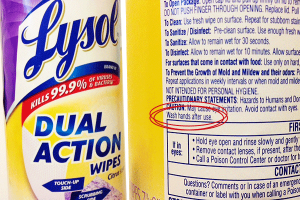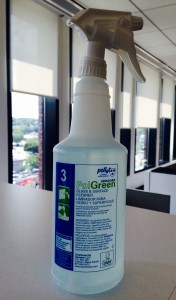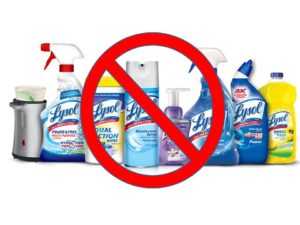What’s in YOUR back-to-school shopping cart?
 Maintaining a healthy learning environment is an important part of making sure that children and school staff can learn, work and breathe in their school, especially those who suffer from asthma and allergies. All too often, conventional products—from school supplies to cleaning supplies— can expose us to toxic chemicals that can pollute the indoor air and cause or make asthma worse. The good news is that there are many safer, green products available these days.
Maintaining a healthy learning environment is an important part of making sure that children and school staff can learn, work and breathe in their school, especially those who suffer from asthma and allergies. All too often, conventional products—from school supplies to cleaning supplies— can expose us to toxic chemicals that can pollute the indoor air and cause or make asthma worse. The good news is that there are many safer, green products available these days.
It’s back to school time – and lots of teachers are stocking up on things they typically buy for their classroom. Often one of those items is disinfecting wipes, purchased because of the belief that they quickly and easily kill germs! It also feels like we are doing a better job of protecting our children from illness … but that is probably not the case.
Contrary to popular belief (and loads of marketing), the data just isn’t there. Even the Food and Drug Administration (FDA) admits that there is no evidence that cleaning with disinfectants is any better at preventing illness than cleaning with regular soap and water.i In  fact, the most effective proven method for reducing illness in schools is implementing a regular old handwashing regimen.
fact, the most effective proven method for reducing illness in schools is implementing a regular old handwashing regimen.
And, many popular disinfectant wipes contain some pretty harsh chemicals that can cause other acute side effects like skin and eye irritation. There’s a reason that the fine print on the package frequently recommends that you wash your hands immediately after use! (Kind of lessens the convenience of a wipe when you still have to go to the sink.)
Disinfectant chemicals called quaternary ammonium compounds “quats”, commonly found in wipes can be skin irritants, irritate your lungs, and have been linked to asthma and reproductive harm. The overuse of quats can also lead to the promotion of antibacterial-resistant bacteria (“superbugs”), which is bad news for everyone.
Save money & your health by keeping your shopping cart green this school year!
Most of the products you use, whether purchased by you or the school department, should meet the goals and requirements of the BPS Green Cleaner  Policy: FMT- 11- BPS Green Cleaning Policy. Instead of spending any of your own money on cleaning supplies, you should instead request a labeled spray bottle from the school custodian filled with the BPS approved all-purpose green cleaner, which is proven to effectively clean and kill germs. However – not all germs are created equal! If there is a virus going around or preventative measures are necessary – such as with the H1N1 flu – there may be the need for targeted disinfecting performed by trained custodial staff.
Policy: FMT- 11- BPS Green Cleaning Policy. Instead of spending any of your own money on cleaning supplies, you should instead request a labeled spray bottle from the school custodian filled with the BPS approved all-purpose green cleaner, which is proven to effectively clean and kill germs. However – not all germs are created equal! If there is a virus going around or preventative measures are necessary – such as with the H1N1 flu – there may be the need for targeted disinfecting performed by trained custodial staff.
Look for other opportunities to order and use less toxic school products this year by using the resources below for more tips and information. Consider becoming a Healthy Schools Champion to promote environmental health actions through your school’s Wellness Council. Contact Jill Carter, jcarter@bostonpublicschools.org at the BPS Health & Wellness Department for more information.
Resources for healthy products, policies and best practices:
- Promoting Healthy School Environments – BPS Resource Toolkit: http://bostongreenschools.org/wp-content/uploads/2014/11/Healthy-Schools-Resource-Toolkit1.pdf
- Healthy Purchasing for Healthy Schools, a guidance memo: Green Cleaning + Five More Product Categories to Help Make Schools Healthier http://www.healthyschools.org/documents/CHS_healthypurchasinghealthyschools.pdf
- Massachusetts Environmentally Preferable Products (EPP) Procurement Program: http://www.mass.gov/anf/budget-taxes-and-procurement/procurement-info-and-res/procurement-prog-and-serv/epp-procurement-prog/
This article was adapted from www.womensvoices.org
